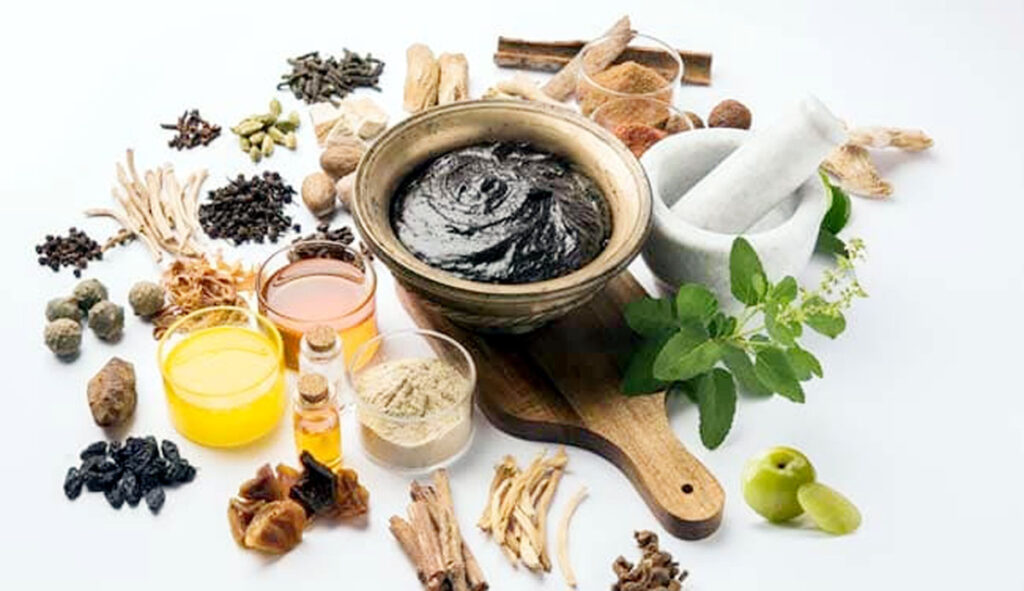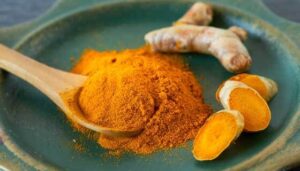Ayurvedic Treatment for Diabetes: In recent years, there has been a growing interest in holistic approaches to managing chronic conditions such as Type 1 Diabetes (T1D). Ayurveda, the ancient Indian system of medicine, offers a comprehensive and holistic approach to health and well-being. With its focus on balance and harmony within the body, Ayurveda provides valuable insights and strategies for managing T1D. In this blog, we delve into the principles of Ayurveda and explore its potential in the treatment and management of Type 1 Diabetes.
Contents
What is Type 1 Diabetes?

Type 1 Diabetes (T1D) is a chronic autoimmune condition characterized by the body’s inability to produce insulin, the hormone responsible for regulating blood sugar levels. Unlike Type 2 Diabetes, which is often associated with insulin resistance and lifestyle factors, Type 1 Diabetes typically develops early in life and is not related to diet or lifestyle choices.
In Type 1 Diabetes, the body’s immune system mistakenly attacks and destroys the insulin-producing beta cells in the pancreas. As a result, the pancreas produces little to no insulin, leading to high levels of sugar (glucose) in the bloodstream. Without sufficient insulin, glucose cannot enter the body’s cells to be used for energy, causing a range of symptoms and complications.
Symptoms of Type 1 Diabetes may include:
- Excessive thirst (polydipsia)
- Frequent urination (polyuria)
- Increased hunger (polyphagia)
- Unexplained weight loss
- Fatigue and weakness
- Blurred vision
- Irritability and mood changes
Why Do People Prefer Ayurvedic Treatment for Diabetes?
People may prefer Ayurvedic treatment for diabetes for several reasons, including:
- Holistic Approach: Ayurveda offers a holistic approach to health and well-being, focusing on treating the root cause of the disease rather than just managing symptoms. Ayurvedic treatments aim to restore balance and harmony within the body, addressing imbalances in the doshas (Vata, pitta, and kapha) and promoting overall wellness.
- Natural Remedies: Ayurvedic medicines are derived from natural sources such as herbs, spices, and minerals, which are believed to be safer and gentler on the body compared to synthetic drugs. Many people prefer natural remedies for diabetes to minimize the risk of side effects and long-term complications associated with conventional medications.
- Individualized Treatment: Ayurvedic medicine recognizes that each person is unique and may require personalized treatment based on their constitution (prakriti), imbalances (vikriti), and specific health needs. Ayurvedic practitioners tailor treatment plans to address the individual needs of patients, considering factors such as age, lifestyle, and overall health status.
- Emphasis on Lifestyle Modifications: Ayurveda emphasizes the importance of lifestyle modifications, including dietary changes, stress management techniques, and regular exercise, in managing diabetes. By adopting a holistic approach that incorporates lifestyle interventions, Ayurvedic medicine aims to improve overall health and well-being while managing diabetes effectively.
- Potential Synergistic Effects: Some Ayurvedic herbs and formulations have been studied for their potential benefits in managing diabetes and its complications. For example, herbs such as bitter melon, fenugreek, and cinnamon have been shown to have hypoglycemic properties and may help regulate blood sugar levels when used as part of a comprehensive treatment plan.
- Cultural and Traditional Beliefs: In many cultures where Ayurveda is practiced, there is a deep-rooted belief in the efficacy of traditional medicines and remedies passed down through generations.
Ayurvedic Principles for Diabetes

Ayurveda, the ancient Indian system of medicine, offers a comprehensive approach to managing diabetes based on its principles of balance and harmony within the body. Here are some key Ayurvedic principles and strategies for managing diabetes:
Dosha Balance
- Ayurveda recognizes three primary doshas or bioenergies: vata, pitta, and kapha. Imbalances in these doshas can contribute to the development and progression of diabetes.
- Managing diabetes in Ayurveda involves restoring balance to the doshas through dietary modifications, herbal remedies, lifestyle interventions, and therapeutic practices.
Dietary Recommendations
- Ayurvedic dietary guidelines for diabetes emphasize whole, unprocessed foods that are easy to digest and support balanced blood sugar levels.
- Recommended foods include fresh fruits and vegetables, whole grains such as quinoa and barley, legumes, nuts, seeds, and lean proteins.
- Foods that are sweet, sour, and salty should be consumed in moderation, while bitter, astringent, and pungent tastes are encouraged as they help balance blood sugar levels.
- Specific foods and spices with anti-diabetic properties, such as bitter gourd, fenugreek, cinnamon, turmeric, and Indian gooseberry, may be incorporated into the diet to help manage diabetes.
Herbal Remedies
- Ayurvedic herbs and formulations are used to support blood sugar regulation, improve insulin sensitivity, and reduce the risk of diabetes-related complications.
- Commonly used herbs for diabetes management include bitter melon, gymnema, fenugreek, cinnamon, turmeric, Indian gooseberry, neem, and holy basil.
- These herbs may be consumed as teas, powders, capsules, or tinctures under the guidance of a qualified Ayurvedic practitioner.
Lifestyle Modifications
- Ayurveda emphasizes the importance of lifestyle modifications in managing diabetes, including regular exercise, stress management, adequate sleep, and maintaining a balanced daily routine.
- Physical activities such as yoga, walking, and moderate aerobic exercise can help improve insulin sensitivity, promote weight management, and support overall health.
- Stress management techniques such as meditation, deep breathing exercises, and mindfulness practices can help reduce stress hormones and stabilize blood sugar levels.
Detoxification (Panchakarma):
- Panchakarma is a detoxification and rejuvenation therapy used in Ayurveda to eliminate toxins from the body and restore balance to the doshas.
- Panchakarma treatments such as Vamana (emesis), virechana (purgation), Basti (enema), Nasya (nasal administration), and rakta mokshana (bloodletting) may be recommended for individuals with diabetes to remove accumulated toxins and promote metabolic health.
Regular Monitoring and Follow-up
- Individuals with diabetes should undergo regular monitoring of blood sugar levels, lipid profiles, and other relevant parameters to assess their progress and adjust treatment as needed.
- Follow-up consultations with an Ayurvedic practitioner are important to review the effectiveness of the treatment plan, address any concerns or challenges, and make necessary adjustments to optimize health outcomes.
List of Ayurvedic Treatment for Diabetes
Ayurveda offers a range of herbal remedies and formulations that are believed to help manage diabetes by supporting blood sugar regulation, improving insulin sensitivity, and addressing underlying imbalances in the body. It’s important to note that Ayurvedic medicines should be used under the guidance of a qualified Ayurvedic practitioner or healthcare provider. Here is a list of some commonly used Ayurvedic treatments for diabetes:
Bitter Melon (Momordica charantia)
- Bitter melon, also known as bitter gourd or Karela is a widely used Ayurvedic remedy for diabetes.
- It is believed to have hypoglycemic properties and may help lower blood sugar levels by improving insulin secretion and sensitivity.
Fenugreek (Trigonella foenum-graecum)
- Fenugreek seeds are rich in soluble fiber and compounds like trigonelline and galactomannan, which may help regulate blood sugar levels.
- Fenugreek seeds are commonly consumed as tea, powder, or soaked seeds and may also be included in culinary preparations.
Turmeric (Curcuma longa)

- Turmeric contains curcumin, a compound with anti-inflammatory and antioxidant properties.
- Studies suggest that curcumin may help improve insulin sensitivity, reduce insulin resistance, and lower blood sugar levels in individuals with diabetes.
Cinnamon (Cinnamomum verum)
- Cinnamon is known for its sweet and aromatic flavor and has been used in Ayurveda for its medicinal properties.
- It may help lower blood sugar levels by improving insulin sensitivity and enhancing glucose uptake by cells.
Gymnema (Gymnema sylvestre)
- Gymnema is often referred to as “Gurmar” or “sugar destroyer” in Ayurveda due to its ability to suppress the taste of sweetness.
- Gymnemic acids found in Gymnema leaves are believed to help reduce sugar cravings, improve insulin secretion, and lower blood sugar levels.
Indian Gooseberry (Amla)
- Indian gooseberry, or Amla, is a potent source of vitamin C and antioxidants.
- Amla may help improve pancreatic function, reduce oxidative stress, and support blood sugar regulation in individuals with diabetes.
Neem (Azadirachta indica)

- Neem is known for its antibacterial, antifungal, and antidiabetic properties.
- Neem leaves, seeds, and oil extracts may help lower blood sugar levels, improve insulin sensitivity, and reduce the risk of diabetes-related complications.
Shilajit
- Shilajit is a mineral-rich substance that is formed over centuries from the decomposition of plant matter.
- It is believed to enhance mitochondrial function, improve energy metabolism, and support overall health, including diabetes management.
Triphala
- Triphala is a combination of three fruits: Amalaki (Indian gooseberry), Bibhitaki (Terminalia bellirica), and Haritaki (Terminalia chebula).
- Triphala is used in Ayurveda to support digestion, detoxification, and metabolic health, which may benefit individuals with diabetes.
Gudmar (Gymnema sylvestre)
- Gudmar is a popular Ayurvedic herb known for its ability to reduce sugar cravings and help regulate blood sugar levels.
- It is often used in combination with other herbs or as part of Ayurvedic formulations for diabetes management.
Conclusion
Ayurveda offers a holistic approach to managing Type 1 Diabetes, focusing on dietary modifications, herbal remedies, lifestyle interventions, and therapeutic modalities to restore balance and promote health. While
Ayurvedic treatments can complement conventional medical management of T1D, it’s essential to consult with qualified Ayurvedic practitioners and healthcare professionals to develop a personalized treatment plan tailored to individual needs and circumstances. By integrating Ayurvedic principles into diabetes management, individuals with T1D can cultivate greater well-being and resilience in their journey toward health and healing.
Do you want to get rid of diabetes? Join our online diabetes treatment program and reverse Diabetes naturally through lifestyle changes such as a Personalized Diet plan, Exercise, Yoga, dieticians, and health coaches.

